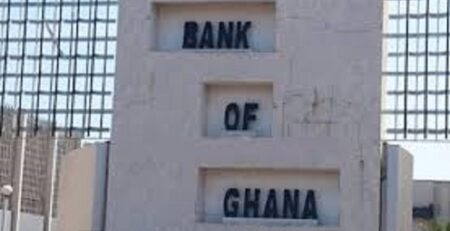Reduce lending rate to RCBs – New Juaben Omanhene appeals to BoG
The Omanhene of the New Juaben Traditional Area, Daasebre Kwaku Boateng lll, has appealed to the government to ensure that the Bank of Ghana (BoG) reduce its lending rate to the Rural and Community Banks (RCBs) in the country.
That, according to him, would enable the RCBs to give soft loans to their shareholders and customers to shore them up in this time of economic difficulties.
Daasebre Kwaku Boateng made the appeal at a two-day meeting of the Association of Rural Banks in Koforidua, the Eastern Regional capital, last Monday.
The event, which was on the theme: “The Role of Rural Banks; Growing Resilient RCBs in Contemporary Ghanaian Economy,” brought together chief executives and directors of RCBs throughout the country.
They were to take stock of the previous year’s activities and plan ahead.
“In the face of the current economic difficulties, I want to appeal to the government to make it possible for BoG to reduce its lending rates to the rural banks to enable them to reduce the interest rates on loans they offer to their customers,” the Omanhene stated.
Support to farmers
Daasebre Kwaku Boateng urged RCBs in the country to support farmers in their operational areas with soft loans to enable them to have confidence in the banks to effectively do business with them.
He appealed to the RCBs not to forget their corporate social responsibilities in the communities that they were operating to give back to them.
The Head of Other Financial Institutions Supervision Department of the BoG, Yaw Sapong, who represented the Governor, Dr Ernest Addison, said the hikes in utility prices and persistent increase in petroleum prices were affecting the operating expenses of the banks, especially the RCBs.
He, therefore, urged member banks to strategically position themselves and strategise to grow the bank’s income and manage cost efficiently so that the current economic challenges might not worsen the fortune of the banks.
Economic development
The Managing Director of the ARB Apex, Alex Kwasi Awuah, for his part, said the significant role played by RCBs in supporting the economic development of the country through rural financial inclusion and intermediation could not be underestimated since the first RCB was set up at Agona Nyakrom in 1976.
That, he noted, had been the lifeblood and pillar of rural economic development through the provision of medium, small and micro-credit to businesses and individuals in the rural areas of the country.According to him, the enormous task now was how to properly structure and position the RCBs to be relevant, competitive and more responsive to the current and emerging needs of the banking ecosystem.
Source:Daily Graphic














Leave a Reply